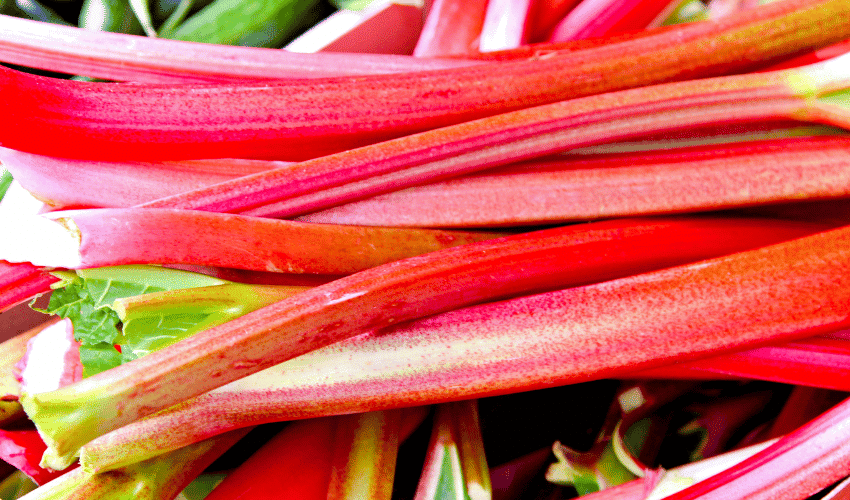9. Rhubarb

Rhubarb is a popular vegetable used in a variety of desserts and baked goods due to its tart and tangy flavor. However, it is important to note that rhubarb contains a high amount of oxalate, a natural substance that can contribute to the formation of kidney stones. Consuming large amounts of rhubarb can increase the concentration of oxalate in the urine, leading to the formation of calcium oxalate kidney stones.
Rhubarb is particularly high in oxalate, with a 1/2 cup serving containing around 100 mg of oxalate. Individuals who are already at risk for kidney stones, such as those with a family history or who have had previous kidney stones, should be particularly cautious when consuming rhubarb.
It is also important to note that the preparation of rhubarb can affect its oxalate content. Cooking or boiling rhubarb can reduce its oxalate content, making it a safer option for individuals who are at risk for kidney stones. However, consuming raw or uncooked rhubarb can increase the risk of kidney stone formation.
To reduce the risk of kidney stones, individuals who are at risk should limit their consumption of rhubarb or opt for cooked rhubarb instead of raw.